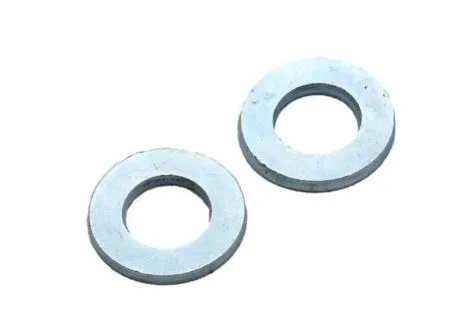Tips for Selecting the Right Washers for Mechanical Applications
Washers may seem like simple hardware components, but they play a crucial role in the overall reliability of mechanical systems. They’re used to distribute loads, prevent surface damage, reduce vibrations, and ensure secure fastening. Choosing the right washer for a specific application can make a significant difference in the durability and efficiency of machinery.
Whether you’re working on heavy-duty equipment, automotive parts, or industrial machinery, the type of washer you choose affects how long the assembly will last and how well it performs under stress. This is why understanding different washer types, materials, and tolerances is so important before making a decision.
Common Types of Washers and Their Functions
Not all washers serve the same purpose. Some are designed to prevent loosening, while others are used for spacing or sealing. Here are the most common types you’ll encounter:
- Flat Washers: These are the most common and are used to evenly distribute the load of a fastener, such as a bolt or nut, over a larger area.
- Spring Washers (Lock Washers): Designed to prevent fasteners from loosening due to vibration or torque. They provide tension that holds the fastener in place.
- Fender Washers: Larger in diameter than standard flat washers, fender washers are ideal for applications requiring more load distribution or where holes are oversized.
- Sealing Washers: Often made with rubber or neoprene inserts, these washers help prevent leaks in hydraulic or pneumatic systems.
- Shoulder Washers: Used as insulators or spacers, shoulder washers can prevent metal-to-metal contact, which helps reduce wear and corrosion.
Knowing which type fits your needs helps narrow down your options and ensures you’re not over- or under-engineering your design.
Importance of Choosing the Right Material
Washer material is just as important as its type. The material you choose affects the washer’s strength, corrosion resistance, and temperature tolerance. Here are some of the most common materials used:
- Stainless Steel: Highly resistant to corrosion and ideal for outdoor or marine environments.
- Carbon Steel: Strong and affordable, suitable for general mechanical applications.
- Brass and Copper: Excellent for electrical conductivity and corrosion resistance in non-ferrous assemblies.
- Nylon or Plastic: Lightweight and non-conductive, commonly used for insulating applications.
- Alloy Steel: Offers high tensile strength, perfect for high-stress mechanical setups.
When working with environments that experience moisture, chemicals, or extreme temperatures, material choice becomes critical. For instance, stainless steel washers are ideal for humid or marine settings, while alloy steel may be better for high-temperature machinery.
The Role of Tolerances and Dimensions
Precision is key when it comes to washers used in engineering and industrial settings. A washer that’s too thick, thin, or off-center can affect the alignment and integrity of the assembly.
That’s where precision metric washers come into play. These washers are manufactured with tight dimensional tolerances, ensuring consistent thickness and perfect alignment. They’re often used in applications that demand accuracy like automotive engines, aerospace components, and heavy machinery where even minor inconsistencies can cause major issues over time.
Using precision metric washers can improve assembly stability, enhance torque control, and extend component lifespan by reducing uneven load distribution.
Load Distribution and Surface Protection
One of the main functions of washers is to distribute load evenly over the contact surface. Without them, the stress from bolts or nuts can cause surface deformation, cracks, or wear. Over time, this can compromise the integrity of the equipment or structure.
For delicate surfaces or soft materials, washers act as protective barriers that prevent direct contact between the fastener and the base material. In this case, larger washers like fender washers are beneficial. They spread the load more effectively, reducing the risk of damage or deformation.
Environmental Considerations in Washer Selection
The conditions where the washer will be used play a huge role in determining which type to select. Factors such as humidity, temperature, exposure to chemicals, and mechanical stress should all be taken into account.
- Corrosive Environments: Opt for stainless steel or coated washers to prevent rust and degradation.
- High-Temperature Applications: Use materials that can withstand heat without losing strength, such as alloy steel or titanium.
- Vibration-Prone Machinery: Choose lock washers or spring washers that maintain tension under dynamic loads.
- Outdoor or Marine Settings: Go for corrosion-resistant options like brass or stainless steel.
Ignoring these environmental factors can lead to premature wear, corrosion, and mechanical failure.
Compatibility with Fasteners and Assemblies
A washer should always complement the fastener it’s paired with. For example, if you’re using metric bolts, make sure to use matching metric washers. Similarly, the inner and outer diameters of the washer must suit the bolt size to ensure proper fit and function.
When washers are too loose, they won’t distribute the load correctly, and if they’re too tight, they may cause friction or deformation. Using standardized components, like precision metric washers, helps maintain uniformity and ensures smooth assembly.
Testing and Quality Assurance
Before integrating washers into mechanical assemblies, it’s wise to conduct quality checks. Look for consistent dimensions, smooth edges, and proper surface finishing. Washers that fail these checks may lead to misalignment or uneven torque application.
Many manufacturers provide certifications for their washers, confirming compliance with ISO or DIN standards. This ensures that you’re getting components that meet the required strength, size, and tolerance specifications.
Final Thoughts
Selecting the right washer for a mechanical application isn’t just about filling a space between the nut and bolt, it’s about ensuring long-term stability, reliability, and safety. From understanding different types to considering material, size, and environmental factors, every decision plays a role in how your assembly performs.
For applications that demand high accuracy and consistency, precision metric washers are often the best choice. They offer the reliability and dimensional control necessary for complex mechanical systems, helping prevent issues before they arise.
By paying attention to these details, you can ensure that every connection in your mechanical system is secure, balanced, and built to last.






